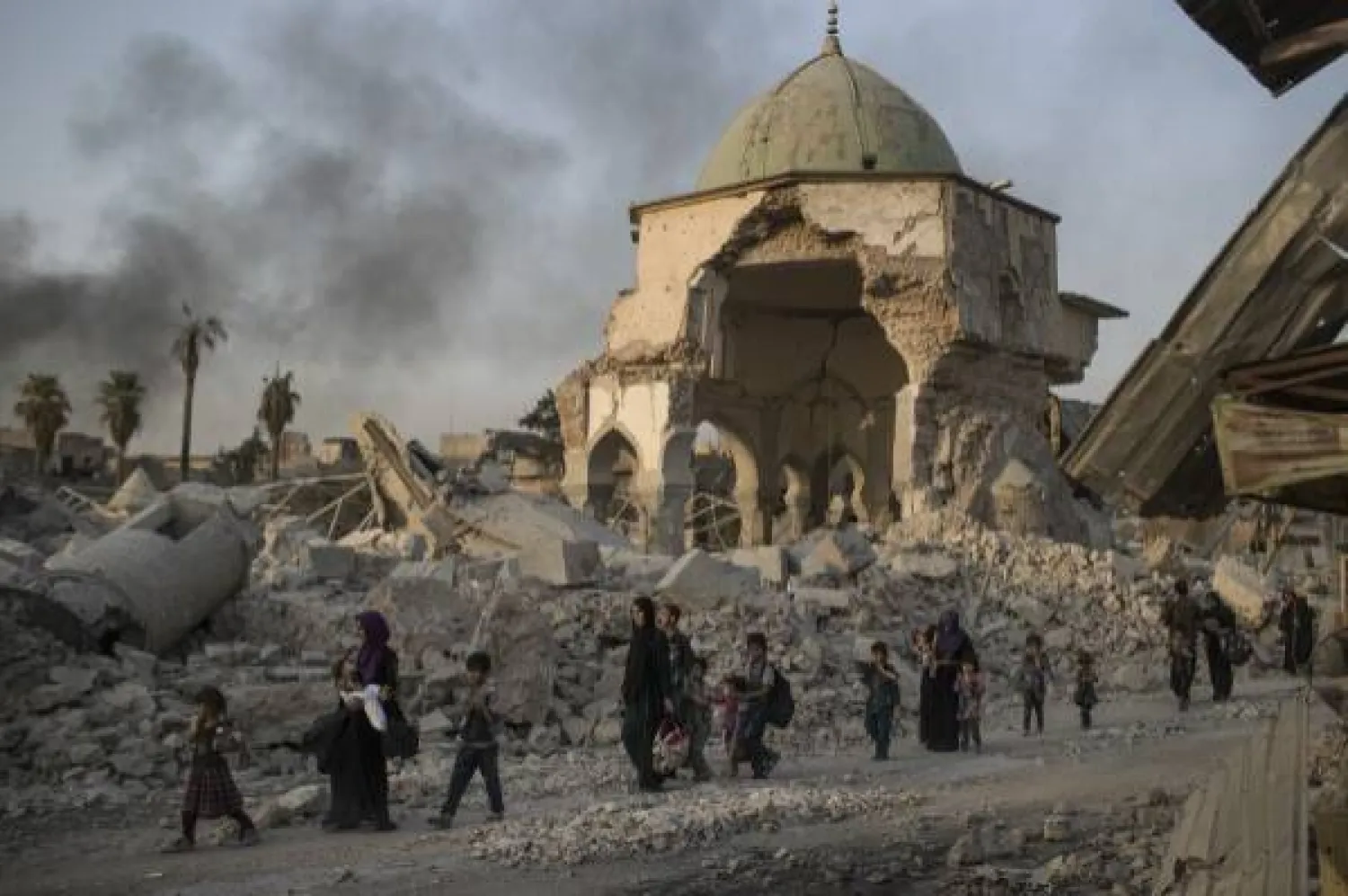The UN cultural agency has discovered five bombs hidden within the walls of the historic al-Nouri Mosque in the city of Mosul in northern Iraq, a remnant of the ISIS militant group’s rule over the area, UNESCO said in a statement Saturday.
The mosque, famous for its 12th-century leaning minaret, was destroyed by ISIS in 2017 and has been a focal point of UNESCO’s restoration efforts since 2020.
The UN agency said that five large-scale explosive devices, designed for significant destruction, were found inside the southern wall of the Prayer Hall on Tuesday.
“These explosive devices were concealed within a specially rebuilt section of the wall,” the statement said. “Iraqi authorities were promptly notified, secured the area, and the situation is now fully under control.”
It added that “one bomb has been defused and removed, while the remaining four are interconnected and will be safely disposed of in the coming days.”
Iraqi authorities have requested that UNESCO halt all reconstruction operations at al-Nouri mosque and evacuate the entire complex until the devices are disarmed, The AP reported.
ISIS leader Abu Bakr al-Baghdadi declared the so-called caliphate from the mosque a decade ago on June 29, 2014, leading to its destruction when extremists blew it up during the battle to liberate Mosul in 2017.
The discovery of these bombs underscores ongoing challenges in clearing Mosul of explosives and revitalizing its devastated urban areas.
International efforts, supported by the United Nations, focus on mine clearance and aiding in the city’s recovery. Despite progress, much of Mosul’s old city remains in ruins, marked by minefield warning signs, highlighting the complexity of post-conflict reconstruction.
UNESCO aims to complete the full reconstruction of al-Nouri Mosque by December.









